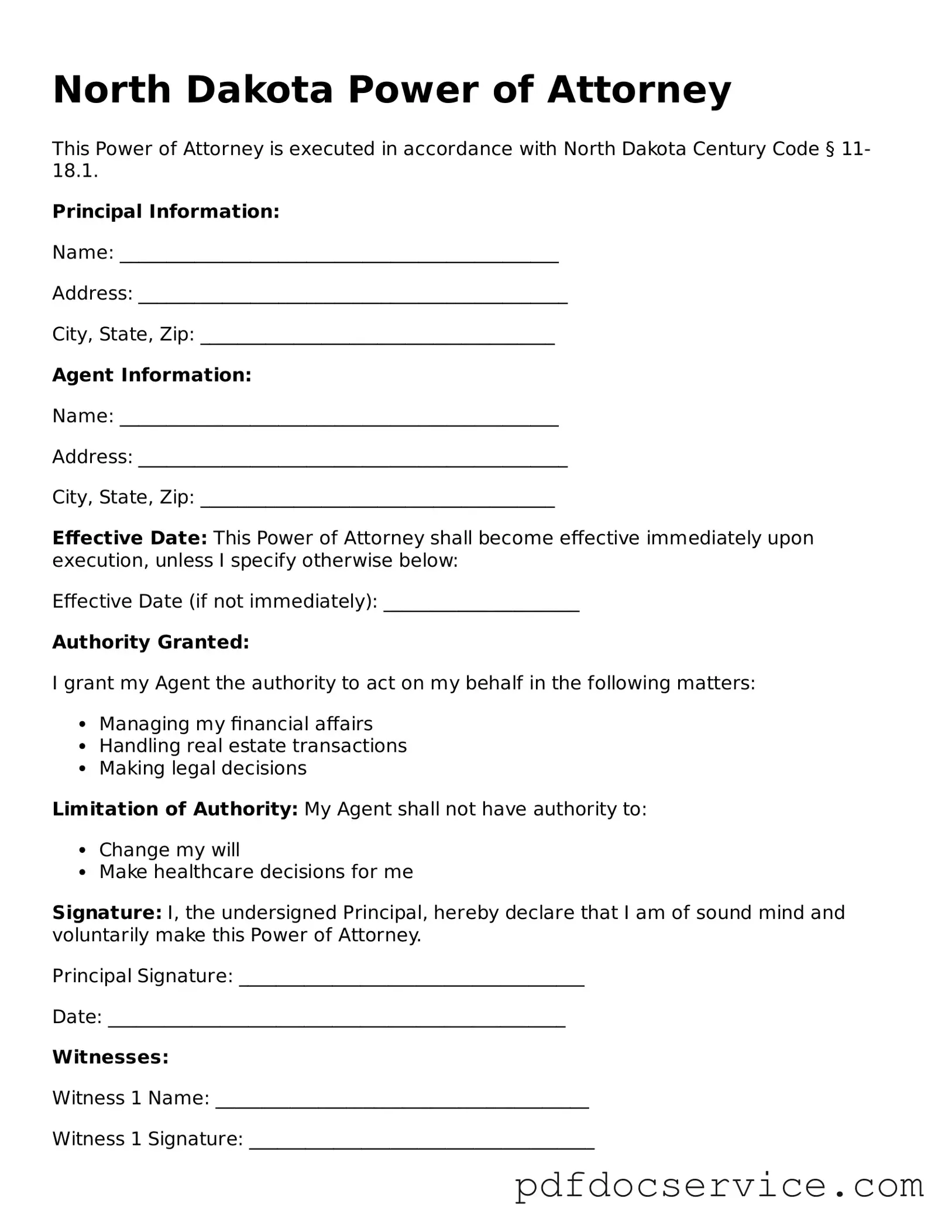What is a Power of Attorney in North Dakota?
A Power of Attorney (POA) in North Dakota is a legal document that allows one person, known as the principal, to appoint another person, called the agent or attorney-in-fact, to make decisions on their behalf. This can cover a range of matters, including financial, medical, or legal decisions, depending on the type of POA established.
What types of Power of Attorney are available in North Dakota?
In North Dakota, there are primarily two types of Power of Attorney:
-
Durable Power of Attorney:
This remains in effect even if the principal becomes incapacitated.
-
Non-Durable Power of Attorney:
This is effective only while the principal is capable of making decisions. It automatically terminates if the principal becomes incapacitated.
How do I create a Power of Attorney in North Dakota?
To create a Power of Attorney in North Dakota, follow these steps:
-
Choose your agent carefully. This should be someone you trust to act in your best interest.
-
Obtain a Power of Attorney form. You can find templates online or consult with an attorney for a customized document.
-
Fill out the form, specifying the powers you wish to grant your agent.
-
Sign the document in front of a notary public. In North Dakota, notarization is required for the POA to be valid.
Can I revoke a Power of Attorney in North Dakota?
Yes, you can revoke a Power of Attorney at any time as long as you are mentally competent. To do this, you should create a revocation document and notify your agent, as well as any institutions or individuals who may have relied on the original POA.
What happens if my agent cannot act on my behalf?
If your appointed agent is unable or unwilling to act, the Power of Attorney may allow for an alternate agent to step in, if one has been named. If no alternate is designated, or if the POA does not provide for this, you may need to create a new Power of Attorney or seek legal assistance.
Does a Power of Attorney in North Dakota expire?
A Power of Attorney does not have a set expiration date unless specified in the document itself. However, it will automatically terminate if the principal becomes incapacitated, unless it is a durable Power of Attorney, which remains effective in such cases.
Can I use a Power of Attorney for healthcare decisions?
Yes, you can designate an agent to make healthcare decisions on your behalf through a specific type of Power of Attorney known as a Healthcare Power of Attorney. This document allows your agent to make medical decisions if you are unable to communicate your wishes.
Is a Power of Attorney valid in other states?
A Power of Attorney created in North Dakota is generally valid in other states, but it’s wise to check the specific laws of the state where you intend to use it. Some states may have different requirements for acceptance, so consulting with a local attorney can help ensure your POA is honored.
What should I consider when choosing an agent for my Power of Attorney?
When selecting an agent, consider the following:
-
Trustworthiness: Choose someone you can rely on to act in your best interest.
-
Availability: Ensure your agent is willing and able to take on the responsibilities.
-
Understanding: Your agent should have a clear understanding of your wishes and values.
Are there any limitations on what my agent can do with a Power of Attorney?
Yes, there are limitations. While your agent can perform many actions on your behalf, they cannot do anything that you have specifically prohibited in the Power of Attorney document. Additionally, agents cannot make decisions that are against your best interests or that would benefit themselves at your expense.

